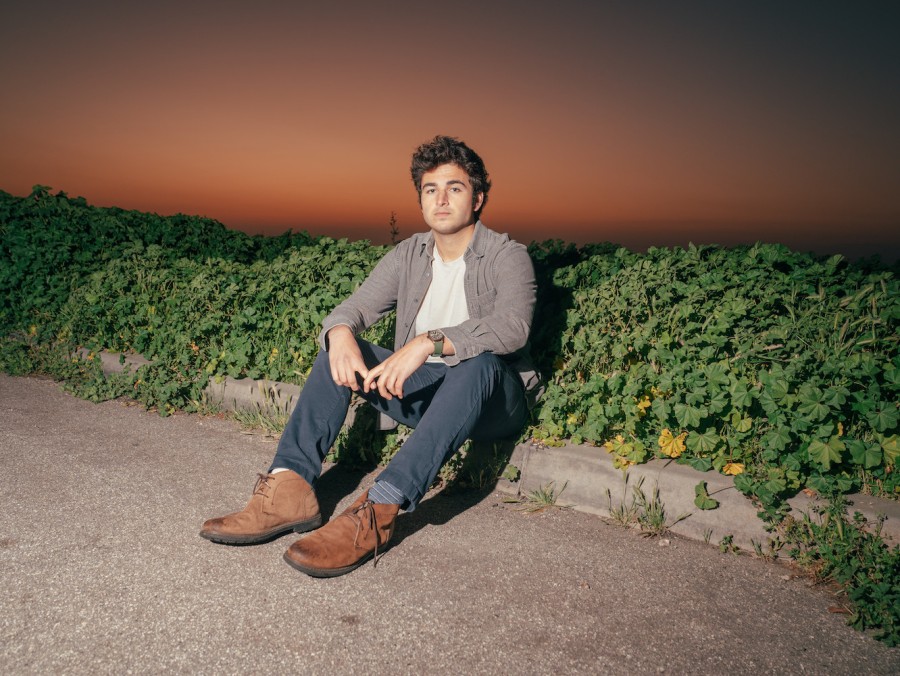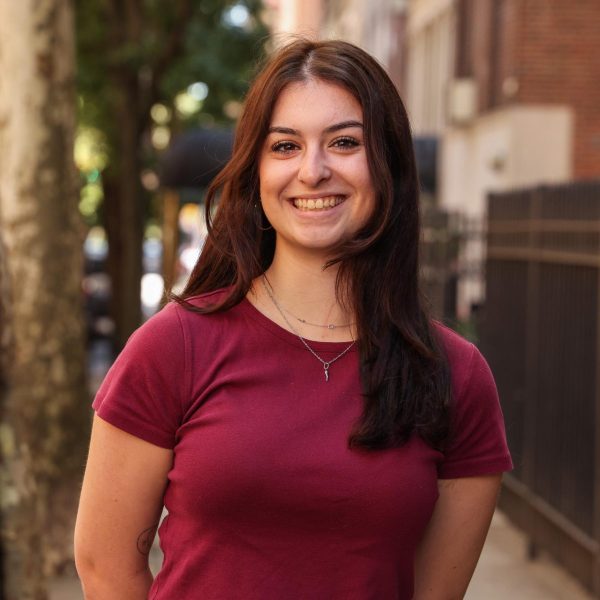Sam MacPherson on new EP ‘Powerlines,’ upcoming tour
“Last Minute” went viral on TikTok and skyrocketed Sam MacPherson into fame. Now, he talks about his new EP and headlining tour.
April 14, 2023
Sam MacPherson was one of the many artists who had a song go viral on TikTok during the pandemic, with “Last Minute” reaching nearly 20 million streams on Spotify. He’s a New Jersey native whose songwriting evokes the emotional lows of breakups and crooked apologies.
“Powerlines,” his eight-song EP, is out today and will be followed by a headlining tour across North America. MacPherson sat down with us ahead of the album’s release to discuss his songwriting process, reluctance to make music for TikTok, and love of Bruce Springsteen.
This interview has been edited for length and clarity.
WSN: You’ve opened for Jake Scott, Chelsea Cutler and The Brook & The Bluff. What did these different experiences teach you about yourself and your music as a live act?
MacPherson: A lot of the opening stuff I did was just me and an electric guitar. It was nice that I played for a lot of people, and I was able to communicate the songs as intended, because that’s what I’m always hoping for when I’m writing. Being able to go out and battle test them was nice.
It’s really nice opening for people because you just kind of show up and it’s their crowd and their show — all of the logistics are taken care of. I just walk on stage and sing my little songs and go about my day. Obviously, there’s a little bit more than that, and there’s still a lot of work that goes into it. Now, going on my own tour, it’s wild how much logistical work there is. It’s definitely nice to open for people, but at the same time, I’m very grateful to do my own thing now.
WSN: You’re a coveted performer, but you’re also a highly sought-after songwriter for other artists. How do you decide whether to keep a song for yourself or share it with another artist?
MacPherson: A lot of the songs I’ve written for other people have been when I’m in the room with them. It is a lot easier than writing a song by myself, saying, “Eh, this is really not me,” and then bringing it to someone. If I’m writing for me, if I can’t finish the song, it’s usually not good enough.
I’ve fought for songs for a week, or a day, or a year or two years, and just really felt there was something there and there wasn’t. That makes it easy in that if songs are not for me, I just won’t finish. It’s not terribly difficult for me to decide what sounds like me.
WSN: With the huge success of “Last Minute,” do you find yourself changing your songwriting style to suit TikTok?
MacPherson: No, I don’t. At least in my mind, the songs have the ability to outlast the attention span of the internet. When I’m writing songs, I’m just looking to create something that, one, was not there before, and two, can somehow last forever. Those are the parameters that I work in — in terms of songwriting. Everything that happens after that, in terms of promotion and marketing and whatever, is always exclusively an afterthought. I hope it stays that way forever — for me, for everyone, for the sake of music and art.
WSN: Have you ever regretted putting so much of your heart out on display, having so much vulnerability?
MacPherson: I have not regretted it yet. Who knows? Maybe. I mean, time is the test that I put all of these songs up against because it’s one of the truest metrics in terms of how I feel about it, how other people will feel about it, what it means to me and how that changes. I don’t regret any of it yet. We’ll see, I guess.
WSN: What are some of the biggest musical influences from your childhood that you still listen to today?
MacPherson: I’m still going back to The Beatles, because they’re the best band ever and have some of the most iconic, prolific, beautiful, genius songwriting. And I’m still going back to more contemporary artists like Frank Ocean — I’m still going back to “Channel Orange” and “Blonde.” And then Stevie Wonder’s “Songs in the Key of Life” is always among my most listened-to albums of the year.
I’ve been listening to a lot of Catfish and The Bottlemen lately. I don’t know where they went. But they’re with me, I guess — I’m holding on to them. The songs from my childhood are still floating around. My dad has been trying to get me to listen to John Prine more recently, because he’s an amazing songwriter, so I’ve been doing that. And Bruce Springsteen has slowly crept in. I’m kind of in like a two-and-a-half-year Bruce moment — maybe the first Bruce moment of my life. Yeah, that’s kind of where I’m at listening-wise.
WSN: How did you decide to title the “Powerlines” EP? Was it inspired by growing up in New Jersey?
MacPherson: The idea of power lines is that we are connected — and that I am connected — to all of these moments and people, feelings, relationships and ideas, that we think are either fleeting or that we’ve left in the past. Somehow, we always find a way to feel connected to them or are brought back to them. A lot of that is me still feeling connected to New Jersey, and at the same time, feeling far away.
I think it’s hard to not let the weird pandemic era of everyone’s lives poison the water a little bit. That can be in terms of how you view things during that time or even now thinking about how that impacted you. You know, everybody was alone. Everybody was trying to feel connected or trying to reconcile themselves to the fact that they didn’t appreciate how connected everyone was before the pandemic.
WSN: What do you hope listeners will feel while listening to the EP?
MacPherson: Mostly just something. I’ve tried to be as honest as I can in the songs and how I feel about the context of the moments, the emotions, and the people in every song. At least in my mind, art isn’t supposed to be superimposed on someone’s own experience. People are supposed to pack it in their lunchboxes and take it home and then decide what it means to them later — or just leave it on a shelf or whatever it is.
I’m just hoping that people give it that chance — take it home or with them on the L — and just know that it could mean something to them. I think that’s really all I can do: explain what it means to me, present what it means to me, and then let Part B after that happen naturally. Because I think that’s how the best relationships happen with music, people, whatever.
Contact Julia Diorio at [email protected].

























































































































































